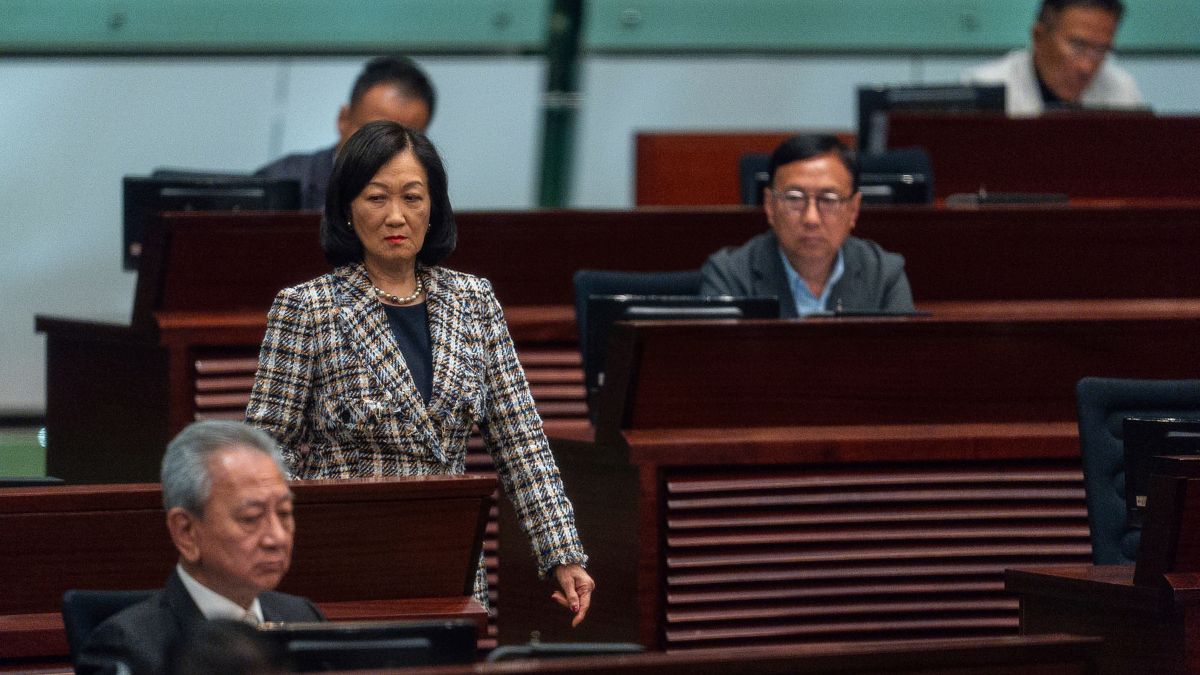Hong Kong lawmakers on Wednesday voted down a bill that would have granted recognition to same sex partnerships in the Chinese city, despite the rights offered being limited, in a major setback to the LGBTQ+ movement.
Hong Kong’s Legislative Council on Wednesday rejected a government bill that sought to formally recognise same-sex partnerships, dealing a setback to LGBTQ rights and defying a top court directive.
The proposal, titled the Registration of Same-Sex Partnerships Bill, was defeated in a 71–14 vote during its second reading, preventing it from moving to a final stage. It marked the first government bill to be voted down since Beijing reshaped Hong Kong’s electoral system in 2021, ensuring a legislature dominated by pro-establishment figures.
Lawmakers opposing the measure argued it lacked broad public support, noting that more than 8,000 of the 10,000 submissions to Legco voiced opposition.
The bill, introduced in July, had aimed to allow residents in overseas same-sex unions to register their partnerships in Hong Kong. It would have provided rights in key areas such as medical decision-making, access to medical records, and the claiming of a partner’s remains after death.
Its introduction followed a 2023 ruling by Hong Kong’s top court, which ordered the government to establish a legal framework for recognising same-sex relationships. Despite this, legislators across the political spectrum resisted, insisting that piecemeal administrative measures could address the challenges faced by same-sex couples.
Some members argued the rejection underscored that the legislature was not a “rubber stamp” for government proposals. Critics, however, warned that the decision undermines Hong Kong’s reputation as a global business hub and leaves same-sex couples in continued legal limbo.
Lawmaker Holden Chow from the city’s biggest pro-establishment party said that the bill’s passage would mean opening “a Pandora’s box,” and “subverting Hong Kong’s marriage system between one man and one woman.”
Another legislator, Junius Ho, said the bill would cause the entire society to become restless for the sake of a small group of people.
Outside government headquarters near the legislature, two women laid out a banner promoting the traditional marriage system.
Many gay rights advocates were unhappy that the rights would only be available to those who registered their unions overseas, and would be limited. But some pragmatically supported and rallied for its passage.
Last Friday, Hong Kong Marriage Equality, a nongovernmental organization, warned in a statement that rejecting the bill would undermine the city’s commitment to fairness and inclusivity. It would also send a wrong signal to the international community, it said.
It argued that the results of public opinion submissions — which the government previously reported as 80% opposing the bill — did not accurately reflect public sentiment. It noted that about half of the publicly viewable submissions against the bill used standardized templates, which suggested “strong mobilization by specific groups.”
Hong Kong’s top court in 2023 ruled that the government should develop a framework for recognizing same-sex partnerships by October. It is unclear what the government’s next steps could be after the vote.
Surveys showed 60% of respondents supported same-sex marriage in 2023, up from 38% in 2013, according to a report by researchers from three universities.
The growing acceptance came as multiple legal challenges won more equal rights for same-sex couples, ranging from dependent visas to subsidized housing benefits. On Tuesday, the Court of First Instance ruled in favour of a lesbian couple’s parental recognition of their son born through reciprocal in vitro fertilisation.
In a previous legislative debate, Solicitor General Llewellyn Mui stated that even if the bill is rejected, the court ruling would remain valid in principle, and the government would be duty-bound to fulfil its obligations to the best of its ability.
The government previously said its proposal represents the “greatest common denominator” deemed acceptable to the public and that the framework would not be equal to marriage. It argued that requiring overseas registration would provide an objective way to verify committed partnerships.
Ahead of the vote, Amnesty International Hong Kong Overseas and 30 rights groups from across Asia have called on the government to disclose a contingency plan if the bill is not passed before the top court’s deadline and introduce a revised proposal without delay.
With inputs from agencies
End of Article

)

